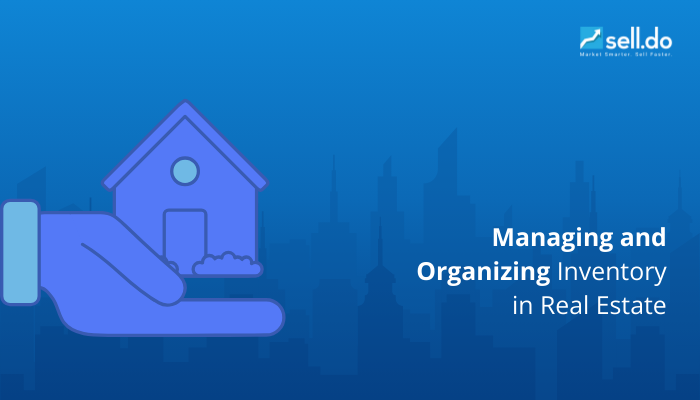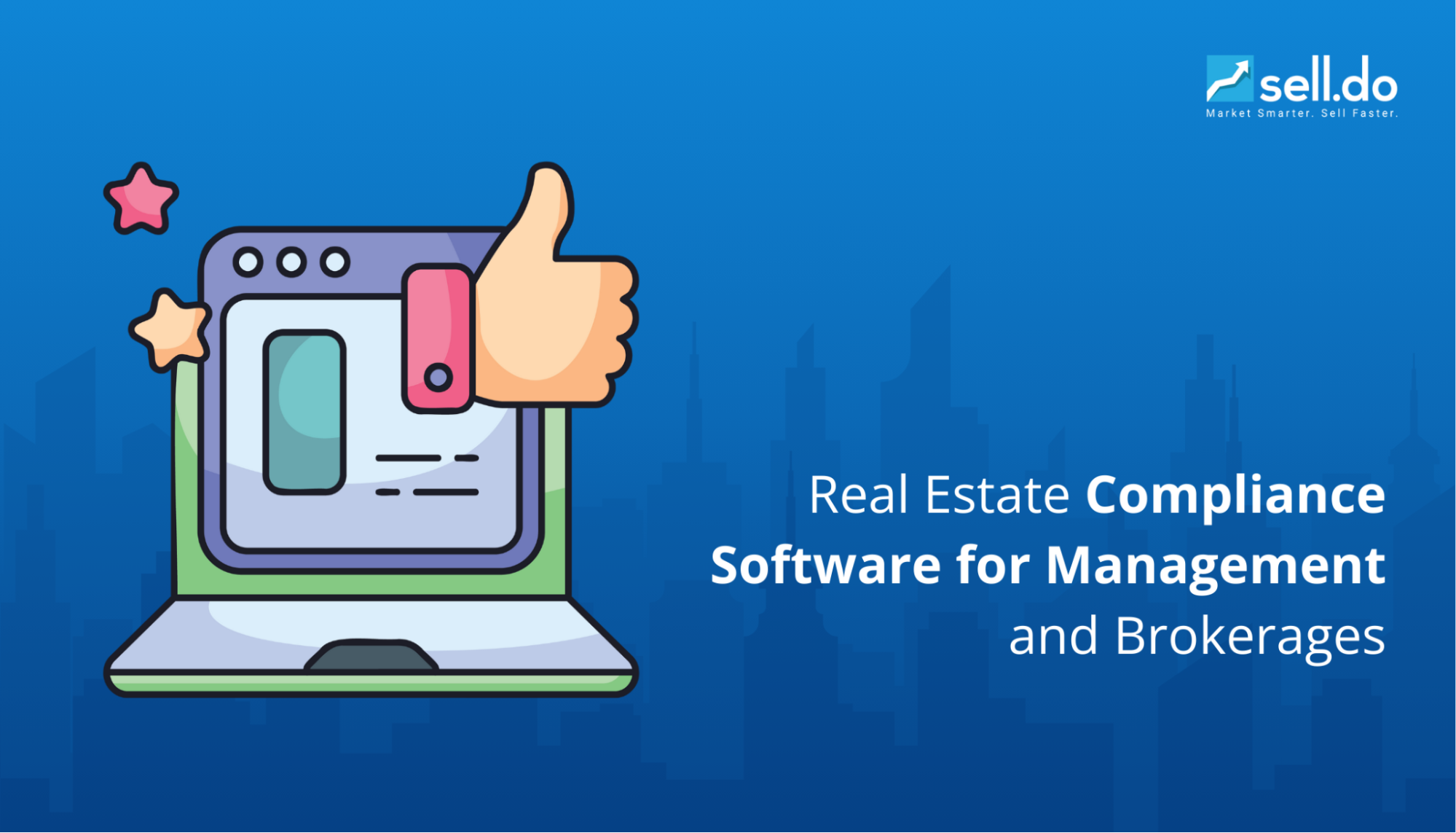As a real estate business, every property you own or manage —houses, apartments, or land—makes up your inventory. It’s more than just a list; it’s what you’re selling, and keeping it organized matters because if you don’t know what’s available, sold, or needs attention, closing deals becomes harder. A well-managed inventory in real estate helps you speed up sales, keeps clients happy, and cuts down on paperwork, giving you more time to focus on your business.
But it's not always easy. When properties are spread across cities, keeping track of them can be a headache. Information gets lost, and finding the exact details when you need them becomes difficult. The right strategies and good software can make a big difference. A well-structured system helps keep photos, documents, and property details organized in one place. Smart software can also set up alerts for listing updates and document deadlines. At the same time, following the right processes—like standardizing data entry and ensuring team-wide consistency—helps prevent confusion and keeps everything running smoothly.
So, what are the best strategies and tools to manage real estate inventory efficiently? Let’s dive in.
Use a CRM System Like Sell.Do

Unlike generic CRMs, Sell.Do is designed specifically for the real estate industry. It understands the complexities of managing multiple projects, tracking inventory, and handling dynamic pricing structures. From automating sales processes to organizing inventory across locations, Sell.Do provides the right tools to help developers and brokerage firms streamline operations and close deals faster.
One of its most powerful features is inventory management—ensuring that every unit, payment schedule, and sales report is easily accessible in real time. Here’s how Sell.Do makes inventory tracking effortless:
- Instant Inventory Access: Get a real-time overview of your projects, towers, and units in one place. Whether you need to check availability, track sales, or forecast demand, Sell.Do gives you complete visibility to make quick decisions.
- Cost Sheets & Payment Schedules: Generate and share customized cost sheets and payment plans in just a few clicks. With pre-configured templates, your sales team can present clear pricing to buyers, making transactions smoother and faster.
- Hold, Block & Book Inventory: Avoid confusion over availability. Sell.Do allows you to hold, block, and book units in real time, preventing duplicate sales and ensuring a smooth client booking experience.
- Data-Driven Reporting & Analytics: Make smarter business decisions with detailed inventory analytics. Sell.Do tracks sales trends, demand fluctuations, and future projections, helping you optimize pricing and marketing strategies.
Sell.Do simplifies inventory management so you can focus on selling, not sorting through spreadsheets. Ready to take control of your real estate inventory? Let’s explore how Sell.Do can help.
You can also go through our blog to understand How Digital Inventory Management Tools In Real Estate Can Benefit Your Business.
Prioritize Inventory Organization
Managing scattered and unorganized inventory in the real estate market can slow down your entire sales process. Projects often span across cities, cater to different buyer segments, and follow varying pricing models. Without structure, your sales and operations teams lose valuable time searching for information—and that can cost you deals. Here’s how organizing inventory in real estate helps your business run more efficiently:
- Organize Inventory by Property Type, Region, or Price: Structuring your inventory based on property type (villas, apartments, or plots), city or locality, and pricing tiers brings much-needed clarity. This makes it easier for your team to access the right data quickly, especially when managing multiple projects across metros and Tier-2 cities.
- Facilitates Rapid Response and Customer Service: A well-organized inventory enables your sales reps to respond to buyer queries without delays. Whether someone’s looking for a 3BHK in Bangalore or a budget home in Nagpur, having clear filters and categories helps your team find suitable options instantly, leading to quicker follow-ups and higher chances of conversion.
- Enhances Service Quality and Saves Time: Your team doesn’t need to waste time digging through spreadsheets or scattered data. They can instantly view unit availability, payment plans, and documentation details with properly categorised inventory. This not only improves the quality of communication but also shortens the sales cycle.
- Improves Productivity and Profitability through Effective Categorization: An organized inventory directly impacts team efficiency. Your sales and marketing teams can align their efforts better, prioritize high-demand units, and track which categories are moving faster. Over time, this results in smarter decisions, faster closures, and improved profitability.
When your inventory is structured, your business runs smoother. In a fast-moving market like India’s, that kind of operational edge makes all the difference.
If you want to drive more leads for your real estate business, check out our blog: Top Real Estate Social Network Platforms and Their Strategies
Efficient Data Entry Systems for Smarter Inventory Management
Listing units and prices is only part of the job in real estate. The real challenge lies in keeping data accurate and up to date across multiple teams and projects, all while working in fast-paced, high-pressure conditions.
Here’s why an efficient data entry system is critical for managing inventory in real estate:
- Adopting Standardized Data Entry Methods to Reduce Errors: Using consistent formats for unit details, pricing, and customer records helps avoid confusion later. For example, entering unit sizes in different formats (sq ft, sq m) or using inconsistent names for localities can lead to errors during filtering or reporting. Standardization reduces manual mistakes and brings clarity across the board.
- Increases Data Reliability and Ease of Access: In the real estate industry, where multiple team members—from sales to site staff—access and update inventory, having reliable and structured data is key. A centralized system allows everyone to pull accurate data without delays, ensuring buyers receive the right information, every time.
- Ensures Accuracy in Time-Sensitive or Large-Scale Projects: Whether you're launching a new tower or dealing with 500+ units across cities like Mumbai, Hyderabad, or Pune, accuracy in data is crucial. An efficient system ensures that updates—like price revisions, inventory blocks, or hold requests—are reflected instantly. This minimizes the risk of double bookings or outdated listings being shared with buyers.
- Enhances Overall Data Management Efficiency: Switching from Excel sheets and manual records to a cloud-based CRM like Sell.Do streamlines how inventory is handled. With automated data syncing, structured templates, and controlled access, your team can manage everything from inventory updates to booking confirmations more efficiently—saving time and reducing overhead.
When your data is clean and structured, your business runs smoother, and your clients get a better experience.
Recommended: Latest Proptech Market Insights and Trends
Regular Monitoring and Smart Use of Inventory Reports

You need consistent oversight and meaningful insights to manage your inventory in real estate efficiently. Without regular checks, it’s easy for details to go out of sync, causing confusion, delays, and missed sales opportunities. That’s where routine monitoring and accurate reporting come in.
Here’s how they help:
- Keep Information Accurate and Up to Date: Scheduled reviews ensure your inventory reflects real-time status—availability, pricing, and unit bookings—so your team always works with the latest information.
- Avoid Miscommunication and Process Delays: When data is current and reliable, it reduces back-and-forth, prevents transactional errors, and keeps both internal teams and customers on the same page.
- Respond Quickly to Buyer Demand: Updated inventory helps your sales team act fast during launches or high-traffic periods—without checking multiple sources or relying on outdated sheets.
- Uncover Issues Early and Take Action: Reports can highlight inconsistencies or problem areas—like underperforming units or delayed updates—before they impact your operations or customer experience.
- Support Smarter, Data-Backed Decisions: Well-structured reports give you clarity on sales trends, unit performance, and project health—helping you plan future inventory, pricing strategies, or upgrades with confidence.
In short, a strong system of monitoring and reporting transforms your inventory in real estate from a list of units into a strategic business asset.
Legal Compliance Matters More Than You Think
In Indian real estate, staying compliant with local laws and RERA regulations is non-negotiable. Poorly managed inventory in real estate can lead to inaccurate listings, delayed handovers, and miscommunication—all of which can result in legal trouble.
Here’s why legal compliance should be built into your inventory system:
- Aligns with Regional and National Guidelines: Whether it’s RERA requirements, city-specific approvals, or tax documentation, organized inventory helps you stay compliant across all stages of a project.
- Reduces Legal Risks: Keeping accurate and timely records of unit bookings, payment schedules, and handovers protects your business from potential disputes or penalties.
And when your inventory system is legally sound, it creates a strong foundation for everything else to function smoothly.
For more information, you can check our blog: Understanding RERA in Real Estate: Objectives and Rules
Conclusion
Inventory in real estate plays a direct role in how efficiently your business runs. When your inventory is clean, organized, and regularly updated, your sales teams respond faster, customer communication improves, and legal compliance becomes far easier. Prioritizing inventory structure gives you the flexibility to adapt to shifting buyer demands, adjust pricing, and position your projects more competitively. With clear data, your marketing becomes sharper, your decision-making stronger, and your overall operations more profitable.
Sell.Do is built for this. As a CRM designed specifically for real estate, it gives you the tools to organize, monitor, and manage your inventory with complete visibility and control—across every project, tower, and unit.
Ready to bring structure to your inventory and speed to your sales? Explore what Sell.Do can do for your business.






Leave a comment
Comments (0)
Be the first one to comment.